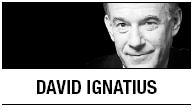WASHINGTON ― Two years into the European debt crisis, there was something faintly comical about a recent headline in Wall Street Journal: “Leaders of Euro Zone Agree on Closer Union.” That phrase must be on a program key on computers in Brussels.

The eurozone is still an impossibility theorem, in terms of what it promises: A common currency for countries that, whatever they claim at summit meetings about joint fiscal policy, remain resolutely separate and sovereign. It’s a matter of deeply rooted culture: Germans aren’t ever going to spend like Greeks, and Greeks aren’t going to save like Germans ― no matter what anyone says in a communique.
Still, there’s a growing sense among financial analysts that Europe may have bought itself some time in its financial crisis. That’s not because of political pronouncements about unity, but thanks to some backroom financial maneuvers by the new head of the European Central Bank, Mario Draghi, whom the analysts have lionized as “Super Mario.”
Since Draghi took the ECB job in November, he has been accomplishing by stealth what he is forbidden to do by fiat ― namely, backstop European markets by acting as a lender of last resort. He can’t directly buy up the toxic debt of European debtor nations, but he’s accomplishing a similar purpose by lending to banks at very low interest rates. He’s pumping in liquidity through the back door, even as the front door remains bolted tight.
Draghi made his move in December, when he announced that the ECB was lending 489 billion euros to banks in three-year “repo,” or repurchase, agreements at very low interest rates. Effectively, he was giving the banks free money. At the time, European credit markets were nearly frozen. According to statistics released two weeks ago, euro-area loans to the private sector declined in December by the sharpest percentage on record.
“We know for sure we have avoided a major credit crunch,” Draghi said during the World Economic Forum in Davos. European financial markets seem to agree: The Stoxx 600 European index entered bull-market territory, up 20 percent from its low in September.
So, two cheers for Super Mario: His creative banking recalls innovative actions taken by Federal Reserve Chairman Ben Bernanke to keep U.S. credit markets operating during the dark days of 2008. Draghi’s backdoor measures finessed Germany’s angst about money-creating central banks (and their inflationary dangers); this German opposition prevents the ECB from lending directly to member countries.
The reason to withhold a third cheer for Draghi is that he can’t solve the core European problem, any more than did last week’s European summit with its unconvincing announcement of ever-closer union. The reality is that the 17 governments that use the euro will not give up their sovereignty, no matter how loudly the Germans demand pledges of fiscal discipline. Until there really is a United States of Europe (which is probably never), any such fiscal promises will be unenforceable.
Think of the eurozone as Fannie Mae: Both have a noble purpose (European unity in the former case, homeownership in the latter); and both carried an assumption that this noble mission was backed by an implicit government guarantee. But when the crunch came, there was no guarantee, and no safety net. Despite Draghi’s monetary sleight of hand, there still isn’t one for the eurozone.
A snapshot of how the financial elite views Europe came at an unusual private dinner I attended in Davos, which included some prominent names in global finance. One guest polled the group about its level of confidence in Europe; nearly all were more optimistic than they had been in November, thanks to Draghi, but a majority said they expected that another big European shock was ahead.
When the group was polled about the likelihood of a breakup of the eurozone over the next five years (i.e., whether a Spain or Italy would drop out), the consensus forecast was that the risk of such a rupture was roughly one in four. Those are scary odds, if you’re betting on European stability.
Super Mario with his elegant monetary police can cushion the damage in the short run, and more power to him. But the common currency still seems founded on an ultimately unrealizable concept of fiscal unity. Rather than trying to pretend this isn’t so, the Europeans should be thinking about how to build a structure that fits the (happy) reality that Germany and Greece will remain two very different countries, with different economic DNA.
By David Ignatius
David Ignatius’ email address is davidignatius@washpost.com. ― Ed.
(Washington Post Writers Group)





![[Herald Interview] 'Trump will use tariffs as first line of defense for American manufacturing'](http://res.heraldm.com/phpwas/restmb_idxmake.php?idx=644&simg=/content/image/2024/11/26/20241126050017_0.jpg)


